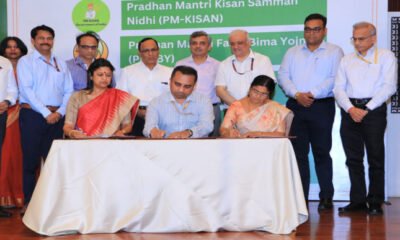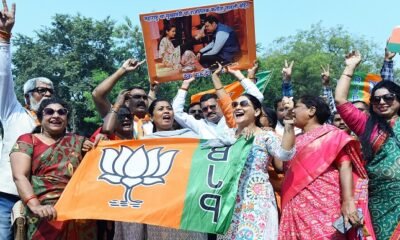National
Perspective on WOMEN EMPOWERMENT
Ishika Arya.
A nation or a society goes ahead only through the contribution of all its members. Push the women into the backyards, and the society itself will be dragged behind. During the struggle for independence, Mahatma Gandhi realizing this, took special efforts to include women in political as well as economic and social struggles. After independence, however, the progress of women and of the society seems to have retarded. Even after so many years, examples galore where on the one hand, the sensitivity over women’s issues are lacking and on the other hand, atrocities against women are rising. Gender discrimination remains a debilitating social issue in many parts of the world, and those subaltern women are often alarmingly affected by poverty, discrimination, and other forms of vulnerable exploitations. Women related issues have many dimensions but they can be summarized as violence, denial and deprivation. Violence can be in parental or matrimonial house, or at work place or elsewhere in the society. Denial comes as denial of the right to be born, or denial of nutrition, education, health, home, property etc. Deprivation results from debarring them from several opportunities of empowerment-
political, economic or career- wise. Indian women continue to languish in a patriarchal society and a colossal percentage of them largely belonging to traditional and religiously orthodox families are deprived of even social mobility and enjoy low social status. While being a female is entirely biological, it is the social construct which decides what feminine stands for- docile, tolerant, weak, passive, homely and so on. No woman or man is born feminine or masculine, adhering to a particular set of adjectives, but is made to act like one due to societal norms. It is highly unfortunate that violence with women is a common phenomenon in Indian households and women are taught to bear with it, to act feminine and to accept the injustice they are put through. Feminism is not about making women strong. Women are already strong. It’s about changing the way the world perceives that strength. Gender inequalities are deep rooted in every society. Women suffer from lack of access to decent work and face occupational segregation and gender wage gaps. In many situations, they are denied access to basic education and health care and are victims of violence and discrimination. They are under-represented in political and economic decision-making processes. Inclusive development cannot be attained unless women participate equally in the development process.
A critical aspect of promoting gender equality is the empowerment of women, with a focus on identifying and redressing power imbalances and giving women more autonomy to manage their own lives. Women’s empowerment is vital to sustainable development. Women’s economic empowerment refers to the ability for women to enjoy their right to control and benefit from the resources, assets, income and their own time, as well as the ability to manage risk and improve their economic status and well- being. Social empowerment strengthens women’s social relations and their positions in social structures, giving them more of a purpose outside of the home. Their contributions to society are recognized and valued as opposed to looked down upon simply because it was a woman’s creation. The political involvement of women “implies the decentralization of power and authority in the deprived, oppressed, and powerless people who have not been able to participate in the decision- making process. Psychological empowerment aligns with social empowerment-it transgresses the “traditional and patriarchal taboos and social obligations” and lets women go beyond what’s expected of them in society.
It is a widely recognized fact that unequal educational status of men and women is both a cause and consequence of a wider gender inequality. Inequality based on gender differences resulted in female literacy rates being lower at 65.46% than that of their male counterparts at 82.14%.
Education is the most effective weapon to break the vicious circles of gender discrimination and gender inequality. Education is associated with a wide range of desirable outcomes like higher productivity and rate of growth, lower level of fertility, higher level of self-esteem and is the only panacea for all kinds of problems. It empowers women with knowledge, skills and self- confidence necessary to participate fully in the development process. Slowly with the increase in literacy level and awareness, society has started giving importance to education. Many parents today want to educate their daughters equally as their son. Many women today are scientists, lecturers, collectors, etc. They are thriving in all areas of life. It was during the Eighth Five Year plan when empowerment of women was recognized and accepted as a distinct strategy for the first time. This was taken forward in the Ninth Five Year plan with the introduction of the concept of Women’s Component Plan, whereby identified ministers were required to indicate the flow of funds to the women’s programmes. Later, the Twelfth Five Year plan identified key indicators for gender equity to be addressed in the planning process through economic, social and cultural empowerment. Empowerment can be brought about in several ways. Women should be placed as leaders and given decision making roles. Although many women are now powerful contributors to the economy of some states, gender equality is still a myth in the greater part of the world. Most women still don’t have access to good job opportunities and resources to get a better-paid job. As the focus shifts towards inclusive economic structures, providing women with leadership opportunities and making them a part of decision making can go a long way in achieving women’s empowerment. Equal rights programmes can invest significantly in promoting decent jobs and public policies, advocating growth and development. One of the biggest concerns about gender inequality is women’s unpaid labor. With empowerment policies striving to raise the incomes of women, resources can be appropriately managed to eradicate the issue. The fulfilment of women’s potential should be promoted through education, skill development and employment, giving paramount importance to the elimination of poverty, illiteracy and ill health among women. All practices should be eliminated through proper laws that discriminate against women and women should be assisted to establish and realize their rights, including those that relate to reproductive and sexual health.
Empowerment stems from self-respect. Furthermore, one must acquire empowerment themselves rather than have it given to them by an external party. Women empowerment will be achieved when women would act as decision-makers for the economic and financial decisions of the family. We shall encourage women from all the sections of society to make their own decisions. A society that has effectively implemented women welfare measures, has ensured gender justice and empowerment of women, has achieved greater social development. In India, Kerela is an outstanding example of socially advanced state and Bihar is one of the socially backward states. Women are the vital human infrastructure and their empowerment would hasten the pace of social development. Investing in women’s “capabilities” and empowering them to achieve their “choices” and “opportunities” is the surest way to contribute to economic growth and overall development.

















